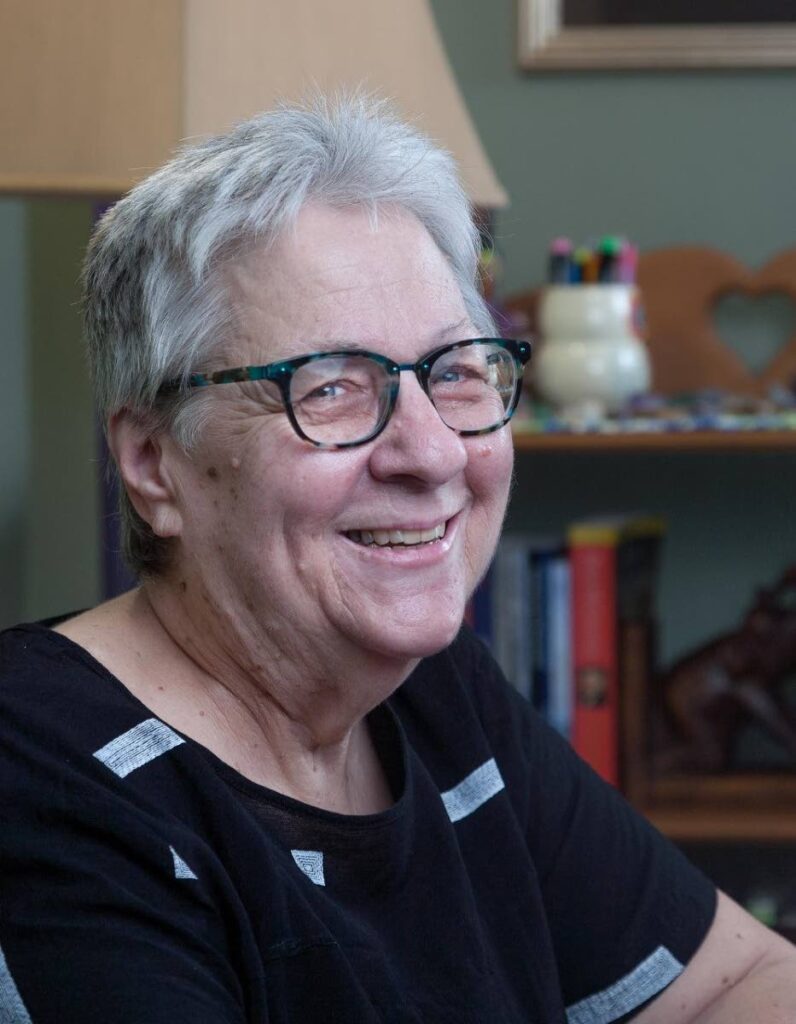A laundry list for education

Debbie Jacob
To: Stuart Young, Ministry of Energy and Energy Industries.
DEAR Mr Young,
I listened with great interest to your recent remarks about wanting to reform the country’s current education system – "shifting from the colonial structure to one that’s more relatable and relevant to our culture.”
There is much for someone in your position to consider and tackle in education as you prepare to step in as prime minister. We must get this right and not make the usual mistakes of “reforming” education. Here are my suggestions as a teacher and librarian.
1. Be advised by various stakeholders – parents, educators, students and the business community – about our present problems and pressing needs for the future. This should not be an unwieldy committee which indulges in months of discussions, which end in a report collecting dust on a shelf.
Have stakeholders come up with a single paragraph about the values and skills we want our students to have. The content we teach will come from that.
2. Be wary of extremists – reactionaries who want to cling to the past and futurists who believe nothing but technology will solve our problems. We should examine what worked in education in the past and what will work for the future. Consider current research about what countries have lost in the quest for reform and why they are backtracking now on education that is heavily weighted toward technology.
3. Know this for certain: we are fooling ourselves if we don’t admit that reading is the key to all education. We must stop pretending students can do meaningful “research” and write SBAs without reading skills. Reading develops critical thinking skills, which should be a top priority in any successful educational model.
4. Education needs to be less textbook-oriented. Instead, use fiction and nonfiction books in history, science and literature that model the skills and values we want to develop in our students. Stop being information-oriented and engage students in critical thinking through reading. They will read if the curriculum provides interesting and relevant literature.
5. Hire teachers who read. You can’t be a teacher if you don’t read and don’t know how to recommend books to students that support their academic, personal and social growth.
6. Free teachers from a prescribed reading list with less than a handful of books to use in their courses and require students to read one book a month. Allow teachers to choose any book suitable for their subject. In Advanced Placement (AP) English in the US, which is equivalent to CAPE here, no two teachers’ reading lists look alike. Students analyse books rather than memorise the elements of literature in each book.
7. Put service learning in the curriculum. It teaches important values like empathy and selflessness, increases communication skills and closes socio-economic gaps. Make sure service learning is meaningful and not just done for a grade. Service learning is an important consideration for accepting students into many universities abroad.
8. Create a library curriculum and make elementary and secondary school libraries the centre of all schools. Students need a library period to develop analytical skills, learn about plagiarism and artificial intelligence (AI), create bibliographies and analyse sources.
Libraries must be stocked with relevant, engaging literature; and encourage book clubs. If you want to see a perfect model for this, talk to the librarian in Mucurapo East Secondary School. Know that all elementary schools need libraries full of picture books.
9. Education also takes place outside of the classroom. NALIS needs a better budget to buy books and stock school libraries. Books are our best tool for fighting crime. I have seen books change inmates’ lives.
10. Make sure all teachers read to students. Children can comprehend and analyse books beyond their reading level, so this helps students at a lower reading level to develop the comprehension and analytical skills they need.
Reading aloud to students is the best way to develop listening skills, which are sorely lacking. It makes them better students overall. Talk to teachers like Marvin Libert at St Joseph RC Elementary School, who reads to his students.
11. Make sure teachers have important resources like updated recommended reading lists that include Hi/Lo (high interest/low level) reading books.
12. Put more specialists in schools to address learning disabilities so students don’t fall behind.
13 Give tax incentives for businesses to invest in schools, buy books for libraries, run book clubs and debate clubs, and assist in service learning.
14. Introduce work/study programmes for less academically inclined students.
Educational reform is important and exciting – if it is done with careful consideration.

Comments
"A laundry list for education"